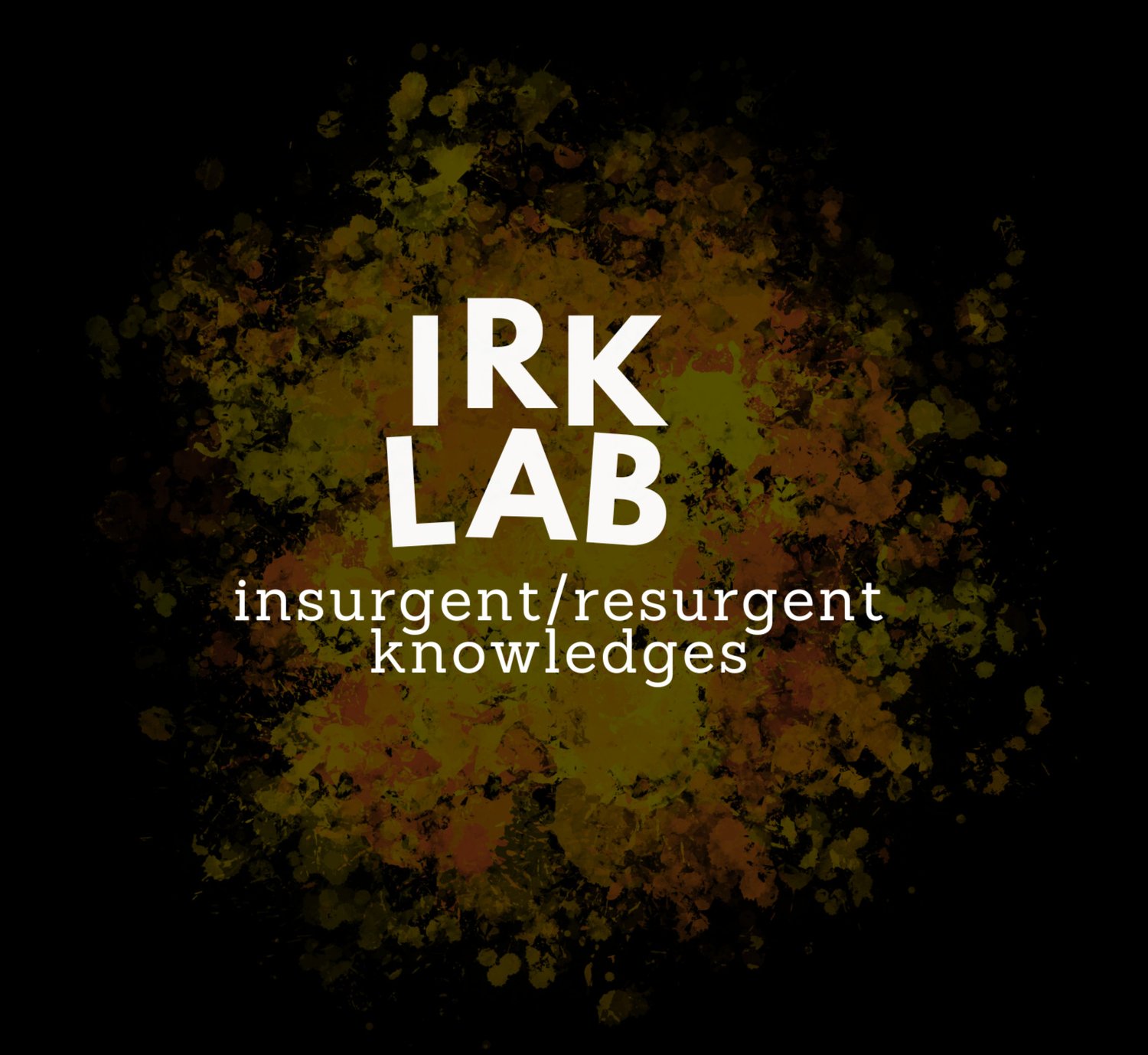
The IRK Lab emerges from diasporic journeys to and from places that our ancestors have lived, were taken, and have settled – journeys via India, Africa, and the Caribbean that have been shaped by British colonialism, racial capitalism and the complexities of historical resistance and wisdom.
It is not just that we, as individuals, have settled and moved with relative ease across the places cared for by the Ojibway-Anishinaabe, Musqueam and Qay’qayt, Lekwungen, W̱SÁNEĆ, Nehiyawak/Cree, Tsuut'ina, Niitsitapi/Blackfoot, Métis, Nakota Sioux, Haudenosaunee/Iroquois, Dene Suliné, Anishinaabe Ojibway/ Saulteaux, the Inuk, the Mississauga’s of the Credit, the Anishnabeg, the Chippewa, the Wendat, the Syilx Okanagan and the Lleidli T’enneh peoples – but also that First Peoples, here and globally, fiercely fight against colonial destruction and attempted elimination, and in varying degrees are also thriving for a different now and a different future.
“Because official histories omit… such [colonial] facts, non-Indigenous people do not question their entitlement to this land. Recovery and reclamation are a process. Those who are keen on conceiving and re-establishing jurisdiction need to remember that diction is about voice and authority is about authoring or creating story. What sort of story do we want to be telling about this island one thousand years from now? Once we have envisioned the answer we need to find some friends— no matter what race they are — and make that vision happen.”
Lee Maracle. Memory Serves, NeWest Publishers, Limited, 2015

Territory and land acknowledgements are a way to assert Indigenous presence, as well as Indigenous people’s historical and ongoing relationships with place.These interrupt colonial and possessive narratives of place.
However, as Indigenous people have noted, without concrete action to disrupt settler privileges and support Land Back movements, these become mere gestures and performative.
We question our own privileges and complicities in Indigenous dispossession, work to learn the history of the places we occupy and interrogate how we came to be here and strive to support the work of local Indigenous people.
Territory Acknowledgement Panel Talk
Linc Kesler and Daniel Heath Justice
Centre for Teaching, Learning and Technology, University of British Columbia
October 18, 2016
Beyond Territorial Acknowledgements - Chelsea Vowel - âpihtawikosisân blog September 23, 2016
“A Land Acknowledgment in a Different Key: Palestine, Solidarity and the Disruption of the Liberal Script” - Brenna Bhandar - Middle East Critique, pp1-16 (2024)
“Ecologies of De/colonization: Embodied Caribbean Diasporic Perspectives,” - Anita Girvan and Astrid Vanessa Perez Pinan - Studies in Social Justice vol. 18 (2024)
“What can ‘settlers of colour’ teach us?” A conversation of the complexities of decolonization in White universities” - Shaista Patel and Nisha Nath - in White Benevolence: Racism and Colonial Violence in the Helping Professions (Fernwood Publishing, 2022)
Making Coast Salish Territorial Acknowledgements Matter
Charlene Aleck / Ts’simtelot (Tsleil-Waututh), Tłakwasikan Khelsilem (Squamish), Christina Nahanee (Musqueam), and Irwin Oostindie (Dutch Settler). Moderator: Aleks Besan (Russian Settler)
Coast Salish Cultural Network
November 25, 2016
“I regret it”: Writing Ryerson University’s territorial acknowledgement



